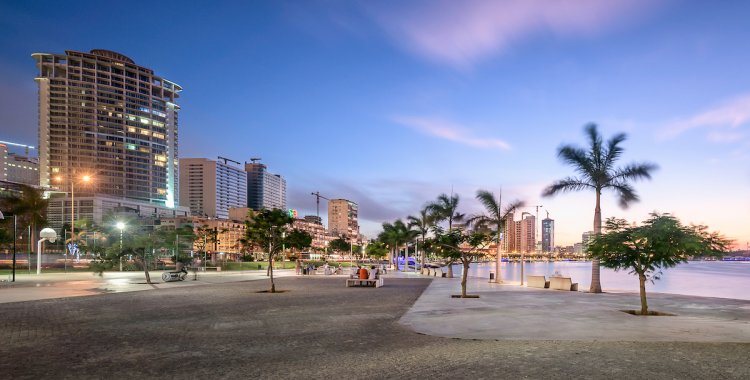"Debt relief efforts for China have the potential to increase support for several emerging countries under pressure from the shock of the covid-19 pandemic," reads a commentary on China's President's statements last week during a meeting with African leaders.
"Debt relief can ease short-term liquidity pressures, particularly for countries that have substantial debt linked to Chinese entities and for which there are payments this year", reads the note to which Lusa had access, warning that "the terms and impact of China's debt relief are likely to vary between countries".
On Monday, Expansão newspaper reported that Angola had already agreed with China on a deferral of debt payments to the value of 21.7 billion dollars, but there was no official confirmation from the government led by João Lourenço.
"In line with the Debt Service Suspension Initiative (DSSI), the Chinese president, Xi Jinping, in a speech at the China-Africa Cooperation Forum (FOCAC), indicated that Chinese financial institutions should meet with African countries to outline agreements on loans with sovereign guarantees, which Fitch sees as official bilateral debt," the comment said.
China, Fitch noted, "is participating for the first time in a coordinated, multilateral and global debt relief action", and holds 25 per cent of the external debt of DSSI eligible countries, according to figures presented in May by the International Financial Institute, which has been leading the negotiations for debt relief on the side of private creditors.
Among the countries that have a significant share of external debt to China and are eligible for DSSI, Fitch lists the Portuguese-speaking countries Angola and Mozambique, as well as others such as Kenya, the Maldives, Ethiopia, Cameroon, Pakistan, Laos and Zambia, and stresses that the terms and conditions may be better than those presented under the G20 DSSI.
In commenting on the Chinese President's announcement, Fitch Ratings recalled that China has already renegotiated the debt of some countries, such as Mozambique in 2017.
In the note, Fitch says it will "take into account the prospects and impact of debt relief by official bilateral creditors, including China, when assessing the liquidity pressures and debt sustainability of sovereign countries" and clarifies that the impact on the rating is not immediate.
"Fitch's sovereign ratings apply to loans from the private sector, so debt relief from official bilateral creditors does not constitute a default for countries taking advantage of the initiative," analysts explain, concluding that "if private creditors follow the G20 call and also provide debt relief, this can qualify as default," but currently this is not seen "as sufficiently likely to affect sovereign ratings.
The Fitch Ratings report comes at the same time that the United Nations Economic Commission for Africa (UNECA) has been holding meetings with African finance ministers, following the public discussion that has been taking place on how governments can honour commitments and, at the same time, invest in the expenditure needed to contain the covid-19 pandemic.
The assumption of the debt problem as a central issue for African governments was well reflected in the concern that the IMF and the World Bank devoted to this issue during the Annual Meetings held in April in Washington, where they made funds available and agreed on a moratorium on paying the debts of the most vulnerable countries to these institutions.
On 15 April, the G20, the group of 20 most industrialised nations, also agreed to a suspension of 20 billion dollars in bilateral debt for the poorest countries, many of which are African, by the end of the year, challenging private creditors to join the initiative.
Private creditors already presented in June the terms of reference for countries to join the initiative for debt relief, which could be suspended but not forgiven, and accumulated interest, but several governments were reluctant to join the initiative for fear of downgrades in ratings, which would drive them away from the international markets needed to finance the reconstruction of economies after the pandemic.
Moody's is the only of the three largest financial rating agencies that considers adherence to bilateral debt relief for G20 countries to be sufficient reason to put that country's rating under review for a downgrade, which led UNECA Secretary General Vera Swonge to say that "no African country" will fail to pay debt to commercial and private creditors.
The UNECA, among other institutions, is designing a plan to swap countries' sovereign debt for new concessional bonds that could prevent the funds needed to fight covid-19 from being used to pay creditors.
This financial mechanism would be guaranteed by a multilateral bank with a triple A rating, the highest, or by a central bank, which would convert the current debt into securities with a longer maturity, benefiting from five years of exemption from payments and lower coupons (interest payments), according to the UNECA.







